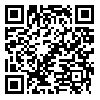Department of Educational Sciences, Faculty of Educational Sciences and Psychology, University of Tabriz, Tabriz, Iran
Abstract: (360 Views)
Simulation has gained significant attention as an innovative educational method in medical education. This systematic review aims to comprehensively examine the effectiveness of simulation in improving clinical skills, medical knowledge, and the readiness of students for real clinical environments. Additionally, this article explores the challenges and barriers in implementing simulation and provides strategies for optimizing its use
This research employed a meta-synthesis approach to review and analyze findings from articles published in reputable international databases between 2010 and 2024. A systematic search was conducted in databases to identify relevant sources. After screening based on inclusion and exclusion criteria, 58 sources were selected for final analysis. Data were analyzed using inductive qualitative content analysis, and the findings were validated by experts
The results demonstrate that simulation is effective in improving students’ knowledge, clinical skills, confidence, critical thinking, and readiness for clinical environments. Additionally, simulation offers benefits such as creating a safe practice environment, providing opportunities for repetitive practice, immediate feedback, and enhancing the satisfaction of students and instructors. However, challenges such as high costs, the need for instructor training, and technical limitations exist. Innovative applications of simulation, including virtual reality and artificial intelligence, hold the potential to further enhance the method's effectiveness
Simulation is a valuable educational tool in medical education that can improve student learning outcomes and, ultimately, the quality of healthcare. However, to fully leverage the potential of simulation, the existing challenges must be addressed, and necessary actions should be taken to effectively integrate it into medical curricula
This research employed a meta-synthesis approach to review and analyze findings from articles published in reputable international databases between 2010 and 2024. A systematic search was conducted in databases to identify relevant sources. After screening based on inclusion and exclusion criteria, 58 sources were selected for final analysis. Data were analyzed using inductive qualitative content analysis, and the findings were validated by experts
The results demonstrate that simulation is effective in improving students’ knowledge, clinical skills, confidence, critical thinking, and readiness for clinical environments. Additionally, simulation offers benefits such as creating a safe practice environment, providing opportunities for repetitive practice, immediate feedback, and enhancing the satisfaction of students and instructors. However, challenges such as high costs, the need for instructor training, and technical limitations exist. Innovative applications of simulation, including virtual reality and artificial intelligence, hold the potential to further enhance the method's effectiveness
Simulation is a valuable educational tool in medical education that can improve student learning outcomes and, ultimately, the quality of healthcare. However, to fully leverage the potential of simulation, the existing challenges must be addressed, and necessary actions should be taken to effectively integrate it into medical curricula
Send email to the article author
| Rights and permissions | |
 |
This work is licensed under a Creative Commons Attribution-NonCommercial 4.0 International License. |


